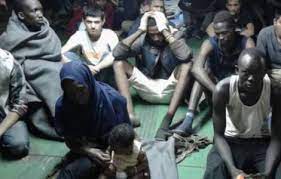Germany is committed to supporting Libya’s efforts to strengthen its border controls on irregular immigration, including by providing technical assistance and sharing its security expertise.
The German Minister of Migration Bernd Kroeser expressed Germany’s willingness to cooperate with Libya, both bilaterally and through the European Union Commission, to combat illegal immigration.
The German Minister of Migration Bernd Kroeser expressed Germany’s willingness to cooperate with Libya, both bilaterally and through the European Union Commission, to combat illegal immigration. The statement was made during a meeting with Libya’s acting Foreign Minister Taher Al-Baour last Wednesday.
Discussions focused on the challenges posed by illegal immigration and the efforts of the Libyan security services to address them. Bernd Kroeser underlined the difficult security conditions in certain countries, which have led to an increase in migration flows to Europe.
Mr. Al-Baour stressed the importance of the Trans-Mediterranean Forum on Migration held in Libya last July. He also noted that Libya, as a transit country, cannot deal with illegal immigration and the challenges it poses on its own. The Minister reaffirmed the Foreign Ministry’s commitment to strengthening bilateral relations in various fields and acknowledged Germany’s central role in supporting political solutions for Libya.
To address these issues, the two sides agreed to establish a joint committee composed of representatives from relevant sectors in both countries. The committee will address issues related to illegal immigration and other security concerns. The aim is to find lasting solutions and strengthen cooperation between Germany and Libya to tackle this complex challenge.
Today, illegal immigration is a global issue that requires a concerted approach and coordinated efforts between nations. Germany, as a member of the European Union, plays a key role in this dynamic and seeks to promote effective policies and measures to manage migration flows while respecting the fundamental rights of migrants.
Discussions will continue and the parties are committed to addressing this complex challenge.
MN/Sf/ac/lb/as/APA


